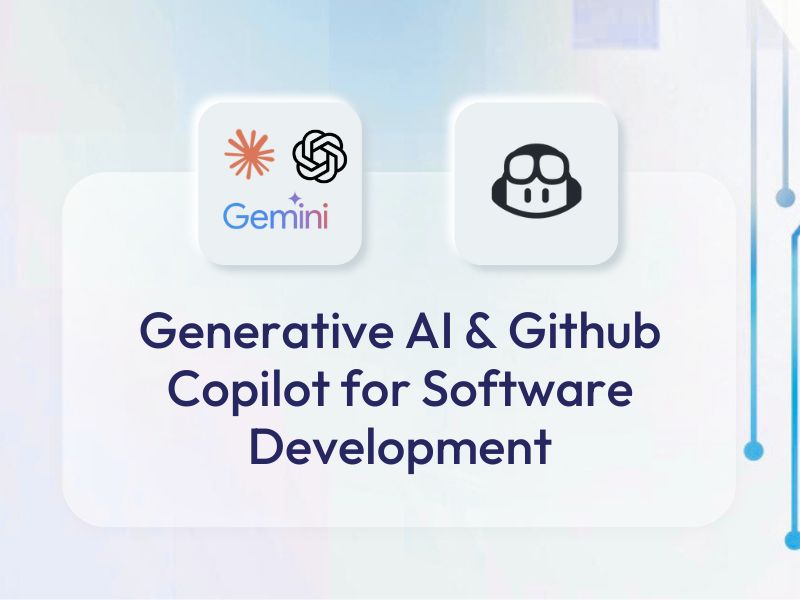Introduction
Large Language Models (LLMs) are transforming how businesses operate, offering powerful capabilities from customer interaction to workflow optimization. As a business owner, understanding and leveraging these advanced AI models becomes increasingly crucial to maintaining a competitive edge, keeping your customers happy and improving your business.
As you explore integrating LLMs into your business processes, a fundamental question arises: should you opt for self-hosting these models or utilize proven cloud-based services? Through this blog we aim to navigate this critical choice by comparing these two strategies. Our goal is to provide the insights needed for your business to choose the LLM solution that best aligns with your unique requirements and objectives. At Compileinfy, our goal is not just to implement the lastest tech but to help you pick the right solution from the plethora of solutions available in the marketplace!
Understanding the Basics
Let’s begin by understanding the basics of Cloud-Based LLMs and Self-Hosted LLMs. At a fundamental level, it is a classic buy vs rent dilemma which you run into on a regular basis.
Cloud-Based LLMs (LLM Inference as-a-Service)
Cloud-based LLMs, or LLM Inference as-a-Service, allow your business to access pre-trained AI models via cloud provider APIs. Major providers include OpenAI, Google Cloud AI (with Gemini), Microsoft Azure, and AWS (with Bedrock). This model typically offers pay-as-you-go pricing and enables quick integration of AI capabilities without upfront investment on the server infrastructure or technical resources needed to setup and maintain the same.
Self-Hosted LLMs
Self-hosting LLMs let’s your business setup and configure the underlying infrastructure. This includes on-premise deployment using your own hardware or dedicated virtual private servers. This approach offers you greater control over AI models, hardware and allows you to train your models on your own data.
Key Comparison Factors
Choosing the right LLM strategy requires careful consideration of several factors that can impact your business operations and costs. Here are the key comparison factors you should consider:
Cost
Cloud-based LLMs typically involve lower upfront costs with a pay-as-you-go model, making them efficient for fluctuating or low usage. Self-hosting, however, entails higher initial investments in hardware and infrastructure but can be more cost-effective in the long run, especially for high-volume usage
Control and Customization
Self-hosted models offer full control over the AI models, hardware, and data, allowing for extensive customization and integration flexibility. Cloud-based services provide ease of use but come with limited options for customization and model selection.
Data Privacy & Compliance
Reputed cloud providers like OpenAI have robust security measures, but there maybe certain industries where data privacy is critical. Self-hosting, particularly on-premise, offers complete control over data handling, which is crucial for strict data policies and regulatory compliance.
Performance & Scalability
Cloud-based LLMs automatically scale to meet demand, allowing handling of increased traffic. Self-hosted solutions require manual setup for scaling and are initially limited by your hardware capacity.
Technical Expertise & Maintenance
Cloud-based services require minimal in-house technical knowledge for deployment. Self-hosting, conversely, demands specialized expertise in AI, infrastructure, and data management for setup and ongoing maintenance.
Ease of Use & Deployment
Cloud-based options generally offer easier and faster deployment and integration due to pre-trained models. Self-hosting involves a more complex initial setup process and ongoing updates.
Self-Hosted LLM vs Cloud-Based LLM
Let’s look at weighing the distinct advantages and disadvantages of each approach. Understanding these trade-offs is crucial for making an informed decision that aligns with your business goals, technical capabilities, and resource constraints.
Cloud-Based LLMs (LLM Inference as-a-Service) |
Self-Hosted LLMs (On-Premise or Cloud-Based) |
|
|---|---|---|
Advantages |
Lower upfront costs with a pay-as-you-go model. Easy scaling and handling of demand spikes due to provider infrastructure. Rapid deployment and integration using pre-trained models and APIs. Minimal in-house technical expertise required for initial setup. Access to state-of-the-art models and ongoing updates managed by the provider. Can be cost-effective for low or irregular traffic. | Full control over AI models, hardware, and data. Greater flexibility and customization of models and deployment settings. Enhanced data privacy and security by keeping data within your infrastructure. Easier to meet strict regulatory compliance requirements. Potential for long-term cost savings for high-volume, consistent usage. Reduced dependency on external vendors and mitigation of vendor lock-in risks. |
Disadvantages |
Costs can add up quickly for heavy usage. Limited control and customization options compared to self-hosting. Dependency on internet connectivity and third-party services. Potential security and privacy concerns regarding data shared with the provider. Possible latency issues. Can be less cost-effective for high-volume, consistent usage. Subject to the provider’s policies, pricing changes, and potential service disruptions. May not be suitable for strict data policies and regulations without careful review. | Higher initial investment in hardware and infrastructure. Requires significant in-house technical expertise for setup, maintenance, and scaling. Manual setup required for scaling and handling increased usage. Limited by your hardware capacity for scaling (for on-premise). Ongoing costs include hardware maintenance, power, and cooling. Can face challenges in accessing high-performance GPUs due to market demands. Requires careful planning and resources for reliable deployment and serving of large models. |
Cloud-Based LLMs (LLM Inference as-a-Service)
Self-Hosted LLMs (On-Premise or Cloud-Based)
Advantages
Lower upfront costs with a pay-as-you-go model. Easy scaling and handling of demand spikes due to provider infrastructure. Rapid deployment and integration using pre-trained models and APIs. Minimal in-house technical expertise required for initial setup. Access to state-of-the-art models and ongoing updates managed by the provider. Can be cost-effective for low or irregular traffic.
Full control over AI models, hardware, and data. Greater flexibility and customization of models and deployment settings. Enhanced data privacy and security by keeping data within your infrastructure. Easier to meet strict regulatory compliance requirements. Potential for long-term cost savings for high-volume, consistent usage. Reduced dependency on external vendors and mitigation of vendor lock-in risks.
Disadvantages
Costs can add up quickly for heavy usage. Limited control and customization options compared to self-hosting. Dependency on internet connectivity and third-party services. Potential security and privacy concerns regarding data shared with the provider. Possible latency issues. Can be less cost-effective for high-volume, consistent usage. Subject to the provider’s policies, pricing changes, and potential service disruptions. May not be suitable for strict data policies and regulations without careful review.
Higher initial investment in hardware and infrastructure. Requires significant in-house technical expertise for setup, maintenance, and scaling. Manual setup required for scaling and handling increased usage. Limited by your hardware capacity for scaling (for on-premise). Ongoing costs include hardware maintenance, power, and cooling. Can face challenges in accessing high-performance GPUs due to market demands. Requires careful planning and resources for reliable deployment and serving of large models.
Choosing based on your business
Choosing the right deployment strategy for Large Language Models (LLMs) is a critical decision for businesses venturing into AI solutions. Both cloud-based LLM Inference as-a-Service and self-hosted LLMs offer distinct sets of features, benefits, and challenges that must be carefully evaluated based on a company’s specific needs and circumstances. Understanding the key comparison factors, advantages, and disadvantages of each approach will empower businesses to make an informed choice that aligns with their strategic goals, technical capabilities, and budgetary constraints.
Self-hosting LLMs is particularly suitable for highly regulated industries like healthcare, finance, and legal, where data privacy and regulatory compliance are paramount. Organizations handling trade secrets or proprietary information also benefit from the complete control over data that self-hosting provides. Large enterprises with the necessary in-house technical expertise and resources for infrastructure management can leverage self-hosting for full customization, enhanced security, and potential long-term cost savings for high-volume usage. The ability to operate without reliance on external vendors and avoid vendor lock-in is another significant advantage for such organizations.
On the other hand, cloud-based LLM Inference as-a-Service is often the preferred choice for startups and small to medium-sized businesses that require rapid deployment and a lower initial investment. The pay-as-you-go model offers cost-efficiency for businesses with low or irregular traffic. Industries where scalability and ease of integration are critical, and where strict data privacy is not the primary concern, can benefit from the automatically scaling infrastructure and managed services offered by cloud providers like OpenAI, Google Cloud AI, Microsoft Azure, and AWS. This approach allows businesses to quickly integrate advanced AI capabilities without the complexities of managing their own infrastructure.
Making the Decision
Ultimately, choosing between self-hosted and cloud-based LLMs is a decision that hinges on a thorough evaluation of your business context, scale, and priorities. It is crucial to assess your long-term vision for AI and the strategic role that LLMs will play in your operations. If you are leaning towards cloud-based solutions, carefully evaluate potential LLM Inference as-a-Service providers by considering their reputation, pricing models, and the range of features offered. For those considering self-hosting, a realistic assessment of your in-house technical capabilities and the resources required to effectively deploy and maintain the infrastructure is essential. Furthermore, it’s wise to consider a proof of concept deployment with cloud vendors to verify their service levels and integration capabilities.
Choosing based on your business
The choice between self-hosted and cloud-based Large Language Models is not a one-size-fits-all solution. As we’ve explored, each approach presents its own set of trade-offs in terms of cost, control, security, scalability, and required expertise. The optimal decision will depend entirely on your business’s unique requirements, available resources, and long-term goals in the rapidly evolving field of LLMs. If you are still navigating this complex landscape and require further guidance in determining the best LLM strategy for your business, don’t hesitate to contact our LLM experts at CompileInfy. We are here to help you assess your needs and provide tailored recommendations to ensure you make the right choice for your AI journey.





